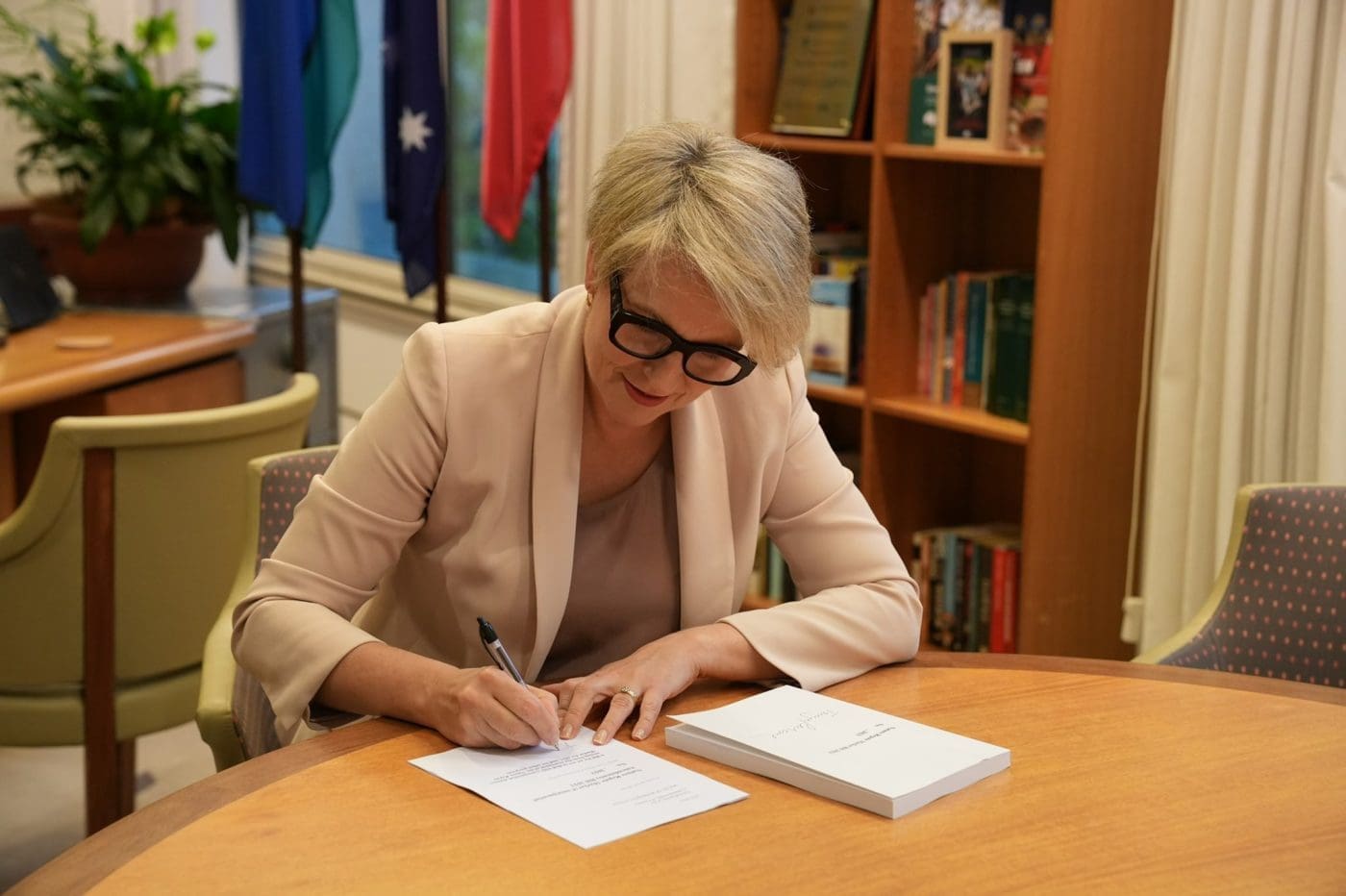Federal environment minister Tanya Plibersek signing the Nature Repair Bill. Source: Tanya Plibersek Twitter
AS the Federal Government aims to make a market for biodiversity, concerns have been raised about some unintended consequences its Nature Repair Market Bill could have for agriculture.
The Nature Repair Market Bill is currently being investigated by a Senate inquiry, that is scheduled to deliver a report by August. (More on what the government is proposing here)
The main debate has been about whether the market should allow companies to use ‘biodiversity certificates’ to ‘offset’ their activities that are detrimental to environment.
Nationals leader David Littleproud, who originally supported Labors proposal, said he was concerned about companies using the market to reduce agricultural production.
“The Nationals have serious concerns that the Nature Repair Market Bill makes provisions for offsetting and expansion into crown leasehold and seaways,” Mr Littleproud said.
“This opens up risk, particularly since the Government has made changes to the Safeguard Mechanism.
“This will potentially enable large parts of agricultural land to be locked up – effectively destroying agriculture and rural communities,” he said.
“The government has strayed too far away from the initial purpose, which was to reward farmers for stewardship of their land.”
Mr Littleproud originally proposed a biodiversity market when the Coalition was in government. It was called the Biodiversity Stewardship bill and it was to be run by the Department of Agriculture.
Labor has a taken a similar idea, but given it to the Department of Environment and called it the Nature Repair Market – based on the premise that “Australia’s natural environment is deteriorating”.
A Senate inquiry is currently investigating the Nature Repair bill with public hearings today. While no agriculture groups are in front of the committee today, some agriculture groups have made submissions – including the National Farmers’ Federation.
Debate over offsets
Farmers for Climate Action has been a big opponent of using biodiversity certificates as offsets. Chief executive officer Dr Fiona Davis said offsets had the potential to take agricultural land out of production.
“Our farmers want to be paid to improve landscapes, but they also want to increase Australia’s biodiversity, not shrink it,” Dr Davis said.
“Allowing offsets also gives big companies the green light to buy essential food producing farmland and clear it to produce offsets.
“Rewarding Australian farmers for increasing biodiversity has the potential to greatly improve the area of Australia managed for biodiversity, given farmers manage more than half the Australian land mass,” she said.
“Payments could also produce drought-resistant income for farmers, which helps them keep employing people in tough times.”
In its submission to the bill, the National Farmers’ Federation said any use of offsets should be purchased on an open market.
“It will be important for these offsets to be able to have a level of price discovery beyond a ‘black box’ approach,” the submission said.
“It might, for example, be a useful benchmark or more advantageous to purchase the offset in an open market rather than by unbalanced bilateral negotiation (or even worse, government determining price unilaterally). In any event the narrowing of eligibility of the use of biodiversity ‘products’ should not be artificially limited, the market, as it matures, will be able to express a view on the underlying intrinsic value of offsets (or indeed other attributes) in the context of broader biodiversity credits.”
Environment Minister Tanya Plibersek has been contacted for comment.





HAVE YOUR SAY